It is 11:30 p.m. in Los Angeles, California, 8:30 a.m. in Florence, Italy, and 2:30 p.m. in Beijing, China. Being this many months into the pandemic, however, time and distance can seem irrelevant—at least on Zoom.
From her apartment in Downtown L.A. (where it is still Friday night), Lydia Lin jumps immediately into her role as translator for the call, patiently troubleshooting some technical difficulties in both Mandarin and English, until finally, her live image and voice beam into Saturday in my Florence apartment and Yuan Luo’s home in Beijing.
Geographically, the three of us could not be farther apart from one another, but our conversation turns toward a different kind of distance—how far along we are on the Covid-19 timeline, and how China has managed to get so far ahead of the rest of the world in addressing the crisis.
As a small business owner in one of China’s most populous cities, Luo has first-hand perspective on the situation there, and experienced the consequences of the pandemic weeks before just about everyone in the world. She has offered to speak with me through Lin to share this perspective with the hope that it may help those of us who are behind to learn to more effectively cope with Covid-19.
Like other businesses in China, a planned closure for the Chinese New Year on January 25 extended unexpectedly when Chinese authorities implemented a regional lockdown that prevented Luo from reopening until mid-February.
Luo first opened RE in 2018 as a multifunctional space; it’s part coffee shop, part restaurant, part bicycle club. “There are many bike clubs in China. They are mostly in major cities like Beijing, Shanghai and Shenzhen,” she explains. “However, most of them are focused on selling bicycles as the ultimate goal to the bike clubs. RE is not only emphasizing cycling, but also a cycling lifestyle.”
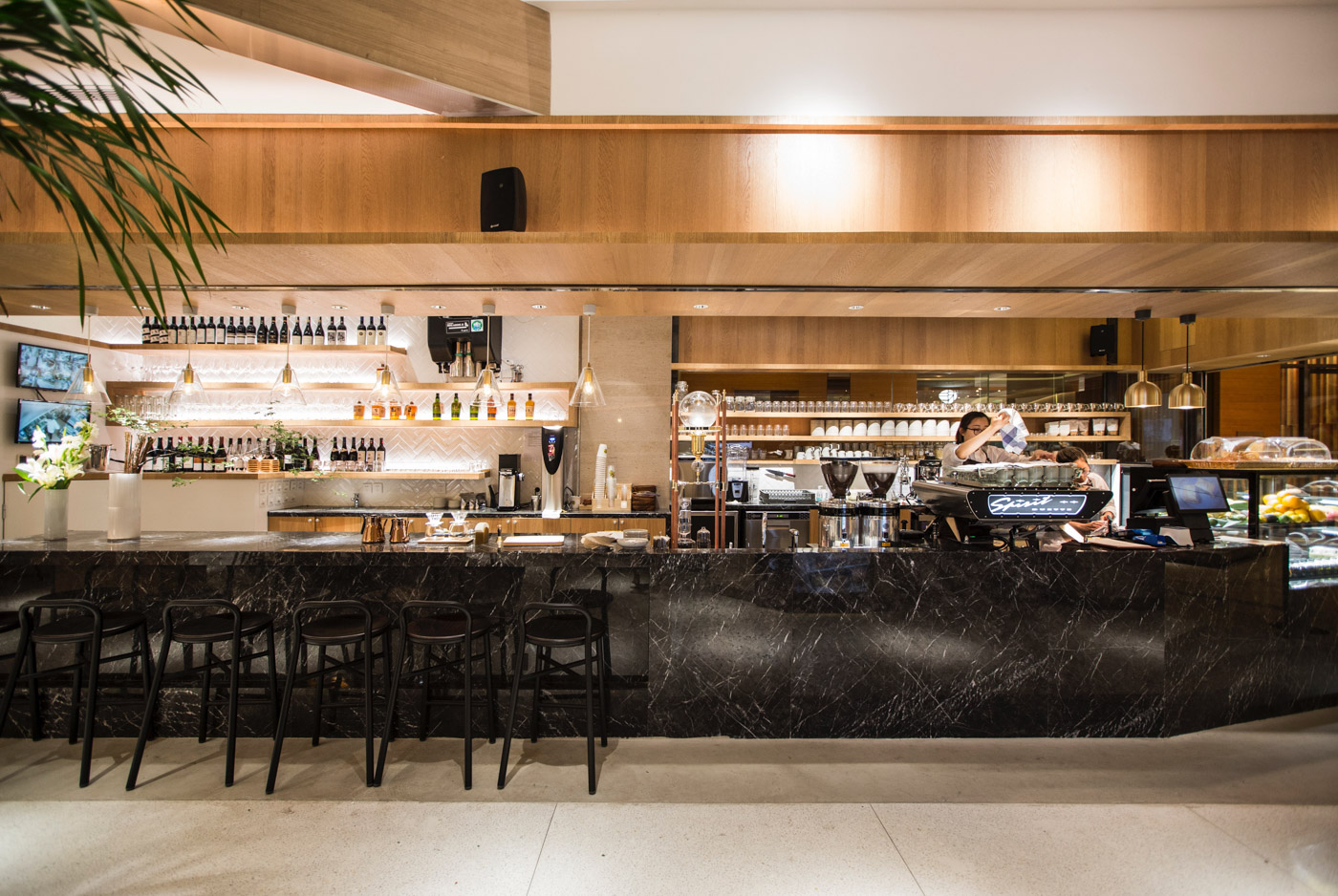
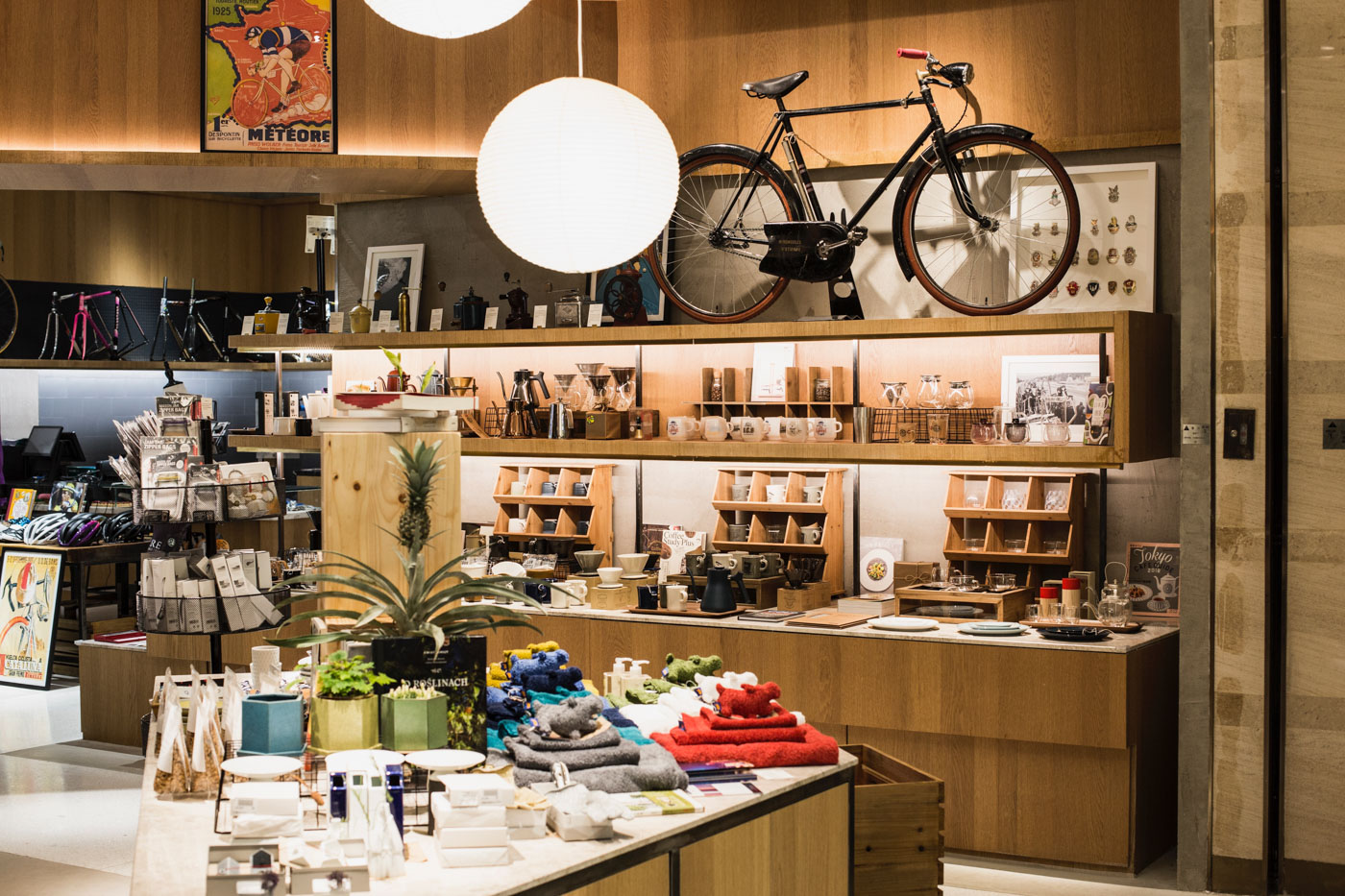
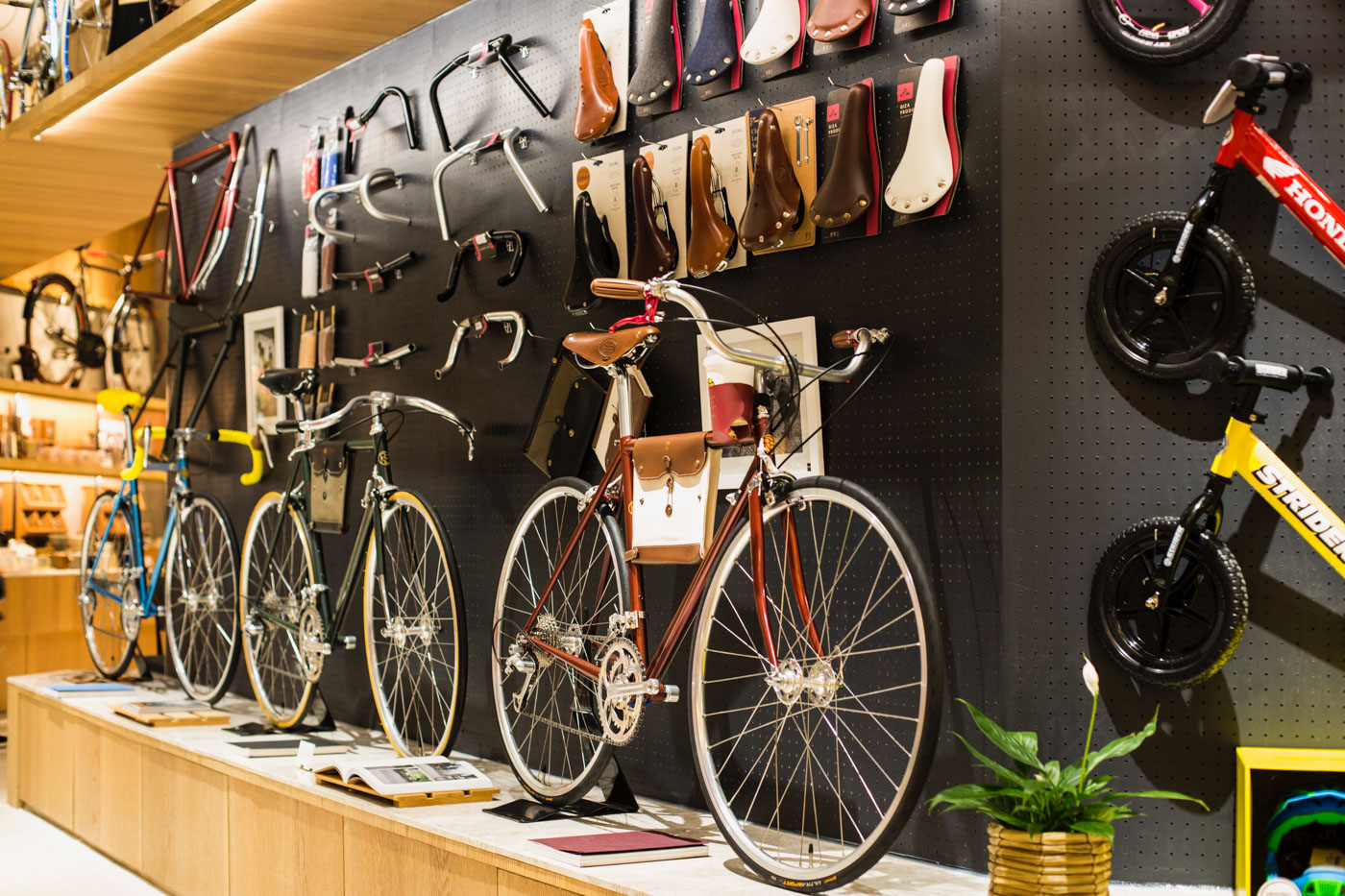
The success of this diversified business enabled her to replicate this business model at a second location just a year later and has helped her survive the challenges of the year so far.
“During the pandemic in China, regardless if it is an international chain or a local restaurant, the impact has been huge,” says Luo. “Where RE is located in a commercially centralized area in Beijing, the restaurants seemed to be extremely slow. RE was fortunate to recover quickly because they have a stable customer group.”
Currently, RE has more than seven thousand members in its bike club. “There are about a few hundred active customers that go to RE for dining,” Luo says. “Among this group, more than half of them are very close to RE and go on a regular basis.”
Since reopening in February, RE customers and staff have adapted to several new safety protocol measures put in place by the local government, including wearing masks indoors and having their temperature taken upon arrival. Both spaces must be thoroughly disinfected every fifteen minutes as well.
“Everyone has been very cooperative and very serious about following the protocols. No one resisted the basic preventive procedures,” comments Luo.
A unique restriction that remains in place at RE is rooted in company values: employees are required to arrive at their shift on bicycles. In the past, staff were always encouraged to bike to work as a way of participating in the biking culture that draws many of their customers (who also largely arrive by bike). Since February, this mandatory practice has helped reduce the amount of contact Luo’s employees have with others in comparison to commuting via public transportation, thereby limiting the risk of contracting and spreading the virus amongst staff and customers.
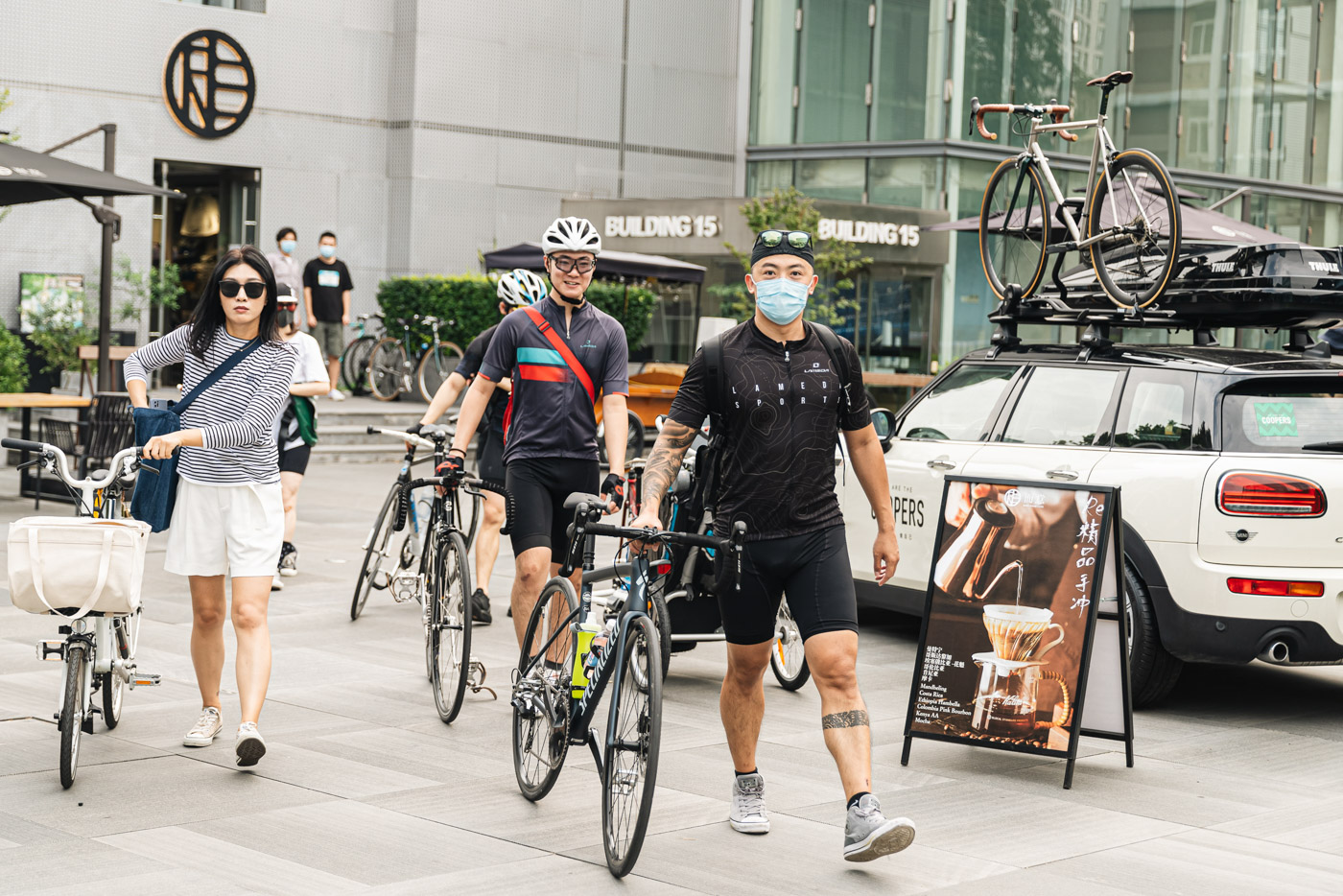
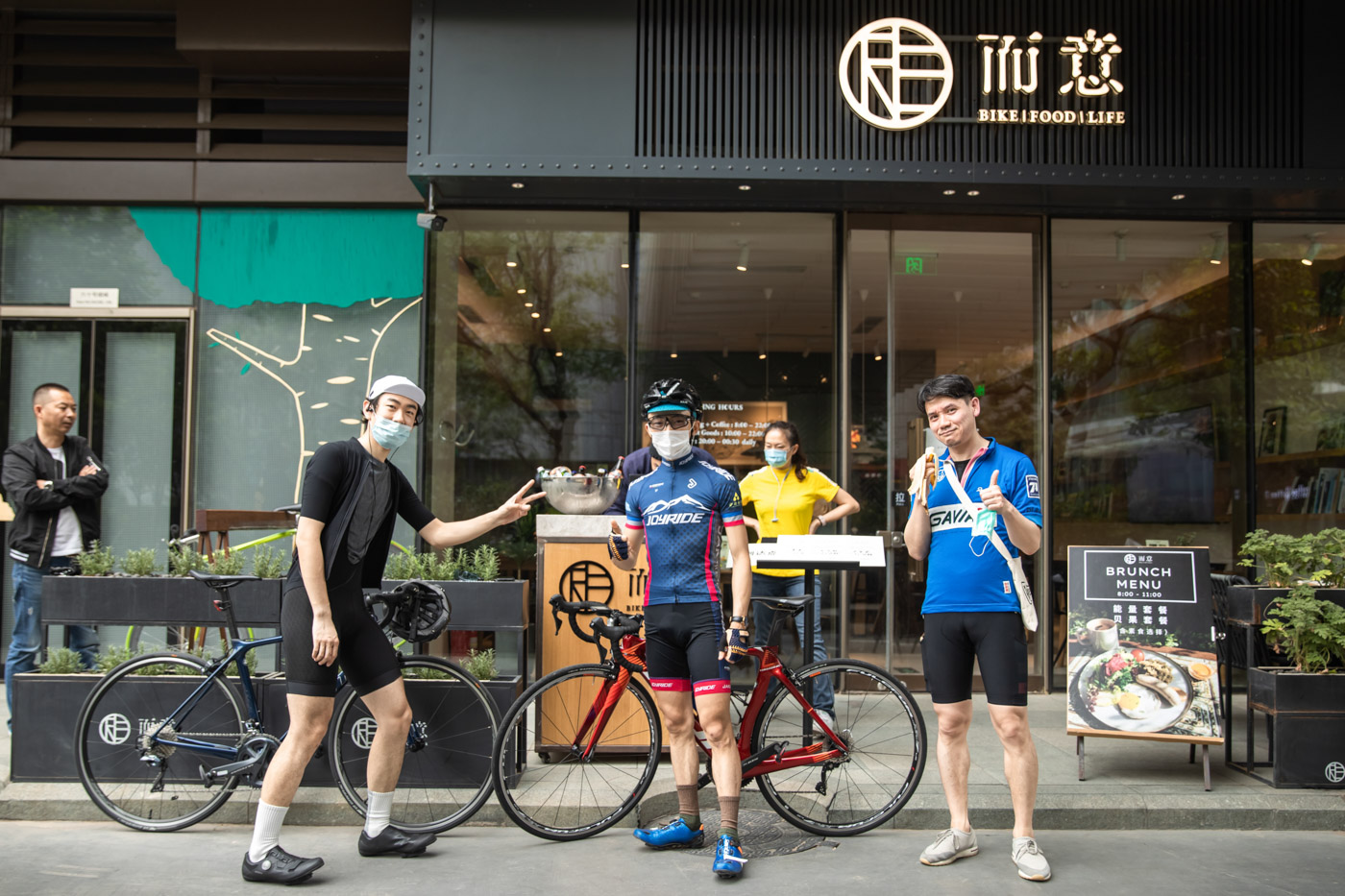
RE was established first and foremost to create a community for cyclists. Besides offering a space for them to gather for food and drinks, Luo also organizes events for members of the bicycle club. While these events were temporarily cancelled during the lockdown, in May, Luo started to schedule community bike rides in the local area, inviting members to come together at a safe distance for coffee and snacks before mounting their bikes.
“RE could not have indoor events, but people like to be here because the ambience of RE is very relaxing. There are smiles and laughs, so people would not feel the anxiety from the pandemic and have a sense of security,” says Luo. “Bikers that go to RE have a sense of belonging and community. They all have the same understanding that the people who go to RE have a healthy lifestyle. They trust each other, so they would put down their guard while they are in RE eating and drinking coffee.” The RE biking community has continued to grow, even during the most difficult moments of the past few months.
When a second wave of infections struck Beijing in early June and the city underwent another, stricter lockdown, a rumor circulated that the virus had come from imported products. The restaurant part of Luo’s business, which offers coffee and typically Western foods like hamburgers, suffered immensely as the Chinese population began to avoid foreign ingredients, motivated by the same sense of xenophobia that impacted restaurants serving Chinese food outside of China at the beginning of the pandemic. Within a few weeks, this rumor lost credibility in China and customers slowly began to return to dine at RE.
Although China’s government provided reduced rent options for business owners and coupons for customers to incentivize dining out, the greatest financial resource for Luo has been the bike shop at RE. With gyms closed, many locals took up cycling as a regular form of exercise. As a result, Luo’s business quickly sold out of many bicycles.

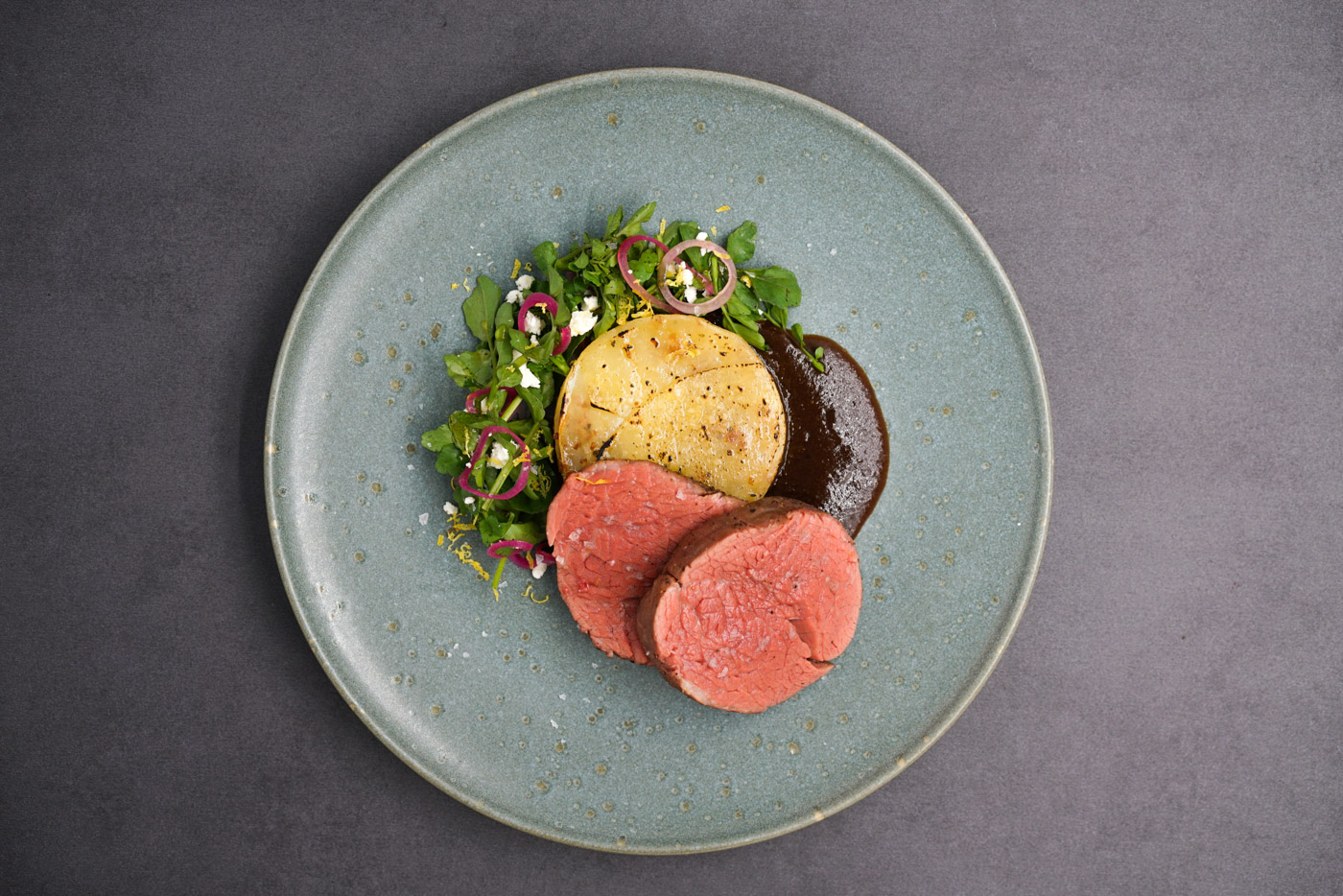
Support from staff and customers has helped RE to survive during this time. On a more personal level, however, Luo has had to face many of the challenges of the pandemic on her own. In March, Luo (who is Chinese) traveled to Tokyo with her husband (who is Japanese). While there, the Chinese government implemented new travel restrictions banning foreigners from entry into China. Luo was forced to return to Beijing alone and has not been able to see her husband since.
While she could visit her husband in Japan, she would have to quarantine for two weeks upon arrival there and again upon reentry into China, which would require her to spend at least an entire month away from her business. This separation has inspired many conversations between Luo and her husband about the differences between how China and Japan are handling the pandemic.
“Chinese citizens are very obedient. If the government tells them to do something, they will do it, unlike the U.S.,” Luo says, noting that this behavior has been especially evident during the pandemic. “In Japan, the government did not mandate the citizens to stay at home or wear a mask. The citizens have volunteered to do so and believe if they don’t do so the situation can worsen. In China, citizens are used to listening to the government and being cooperative with the governmental orders.”
Luo also explains that culture affects the spread of the virus in a number of ways. “The daily habits in Asian culture are dramatically different from those in the Western culture. Western culture is very outgoing and very passionate, whereas Asian culture is more traditional.” She says for the most part, interactions are kept at a distance. Luo also describes these habitual differences in the context of face covering requirements. “In Japan, there has been a culture to wear masks since many Japanese have allergies. However, there is no mask culture in China. Even if one has a cold, the individual may not wear a mask in public. After the pandemic, all Chinese wear masks because the government told them to do so.”
Politics, culture, and countless other elements will continue to influence the path forward through the pandemic for every country across the world at a scale beyond individual control, but we all have a role to play in our own communities. Luo has shown that we can continue to care for and grow those communities, even now.
As we finish up our call, Luo extends an invitation for Lin and I to join her in Beijing when it is safe to travel again. And, just like that, her community gains two new members, and the digital world, for a second, conveys a feeling of hope.
Photos courtesy of RE. Translating support by Lydia Lin.





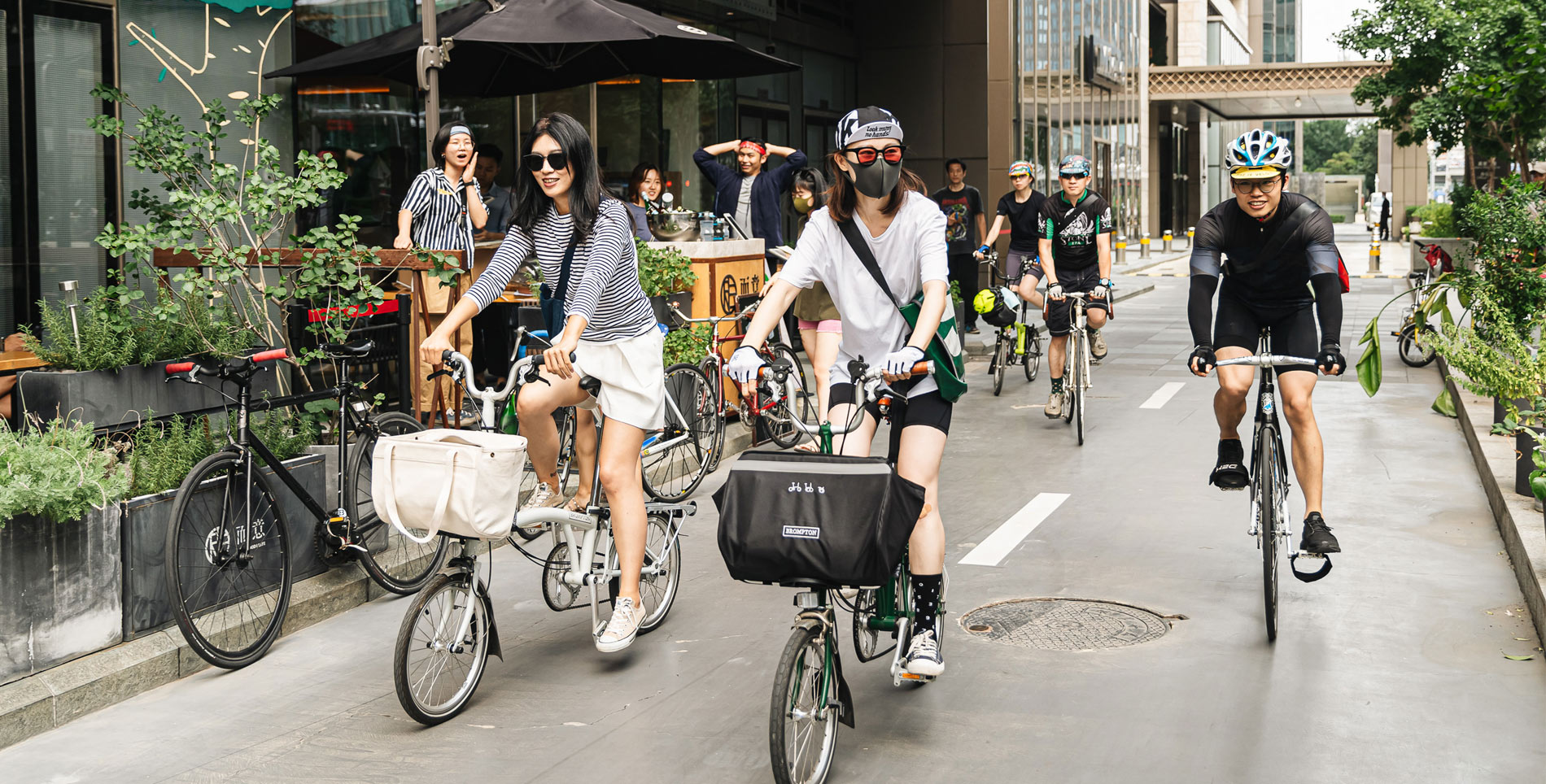

Our comments section is for members only.
Join today to gain exclusive access.